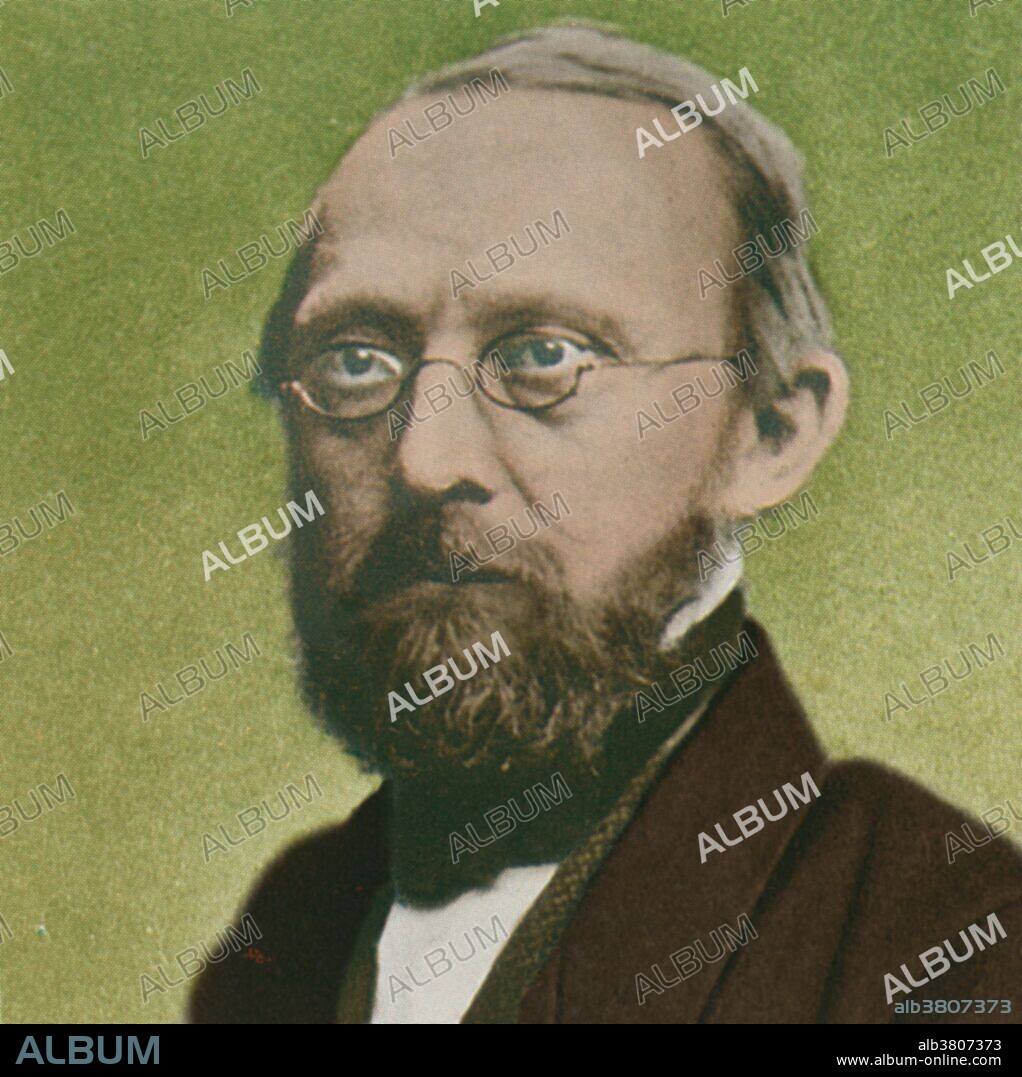alb3807373
Rudolph Virchow, German Polymath

|
Add to another lightbox |
|
Add to another lightbox |



Title:
Rudolph Virchow, German Polymath
Caption:
Rudolph Carl Virchow (October 13, 1821 - September 5, 1902) was a German doctor, anthropologist, pathologist, prehistorian, biologist and politician, public health advocate. Referred to as "the father of modern pathology," he is considered one of the founders of social medicine. His most widely known scientific contribution is his cell theory, which built on the work of Theodor Schwann. He is cited as the first to recognize leukemia cells. Another significant credit relates to the discovery, made simultaneously by Virchow and Charles Troisier, that an enlarged left supra-clavicular node is one of the earliest signs of gastrointestinal malignancy. He described the factors contributing to venous thrombosis and coined the term embolism. He founded the medical fields of cellular pathology and comparative pathology. In response to a lack of standardization of autopsy procedures, he established and published specific autopsy protocols. Virchow was an advocate for social and political reform stating, "The physicians are the natural attorneys of the poor, and social problems fall to a large extent within their jurisdiction." He died of heart failure in 1902 at the age of 80.
Credit:
Album / Science Source / New York Public Library
Releases:
Model: No - Property: No
Rights questions?
Rights questions?
Image size:
3192 x 3198 px | 29.2 MB
Print size:
27.0 x 27.1 cm | 10.6 x 10.7 in (300 dpi)
Keywords:
1821 • 1902 • 19TH CENTURY • 20 XX TWENTIETH CENTURY • 20TH CENTURY • 20TH • ANTHROPOLOGIST • ART • ARTWORK • BIOLOGIST • CELEBRITIES • CELEBRITY • COLORIZED • DOCTOR • DRAWING • ENHANCEMENT • EUROPEA • EUROPEAN • EUROPEANS • FAMOUS PEOPLE • FAMOUS • FIGURE • GERMAN • GERMANS • HISTORIC • HISTORICAL • HISTORY • ILLUSTRATION • ILLUSTRATIONS • IMPORTANT • MALE • MAN • MEN • NOTABLE • PATHOLOGIST • PATHOLOGY • PEOPLE • PERSON • PERSONALITIES • PERSONALITY • POLITICAL • POLITICIAN • POLITICS • PORTRAIT • POTRAIT • PUBLIC HEALTH • R. VIRCHOW • RUDOLF VIRCHOW • RUDOLPH VIRCHOW • SOCIAL MEDICINE • TWENTIETH CENTURY • VIRCHOW • WELL-KNOWN
 Pinterest
Pinterest Twitter
Twitter Facebook
Facebook Copy link
Copy link Email
Email

